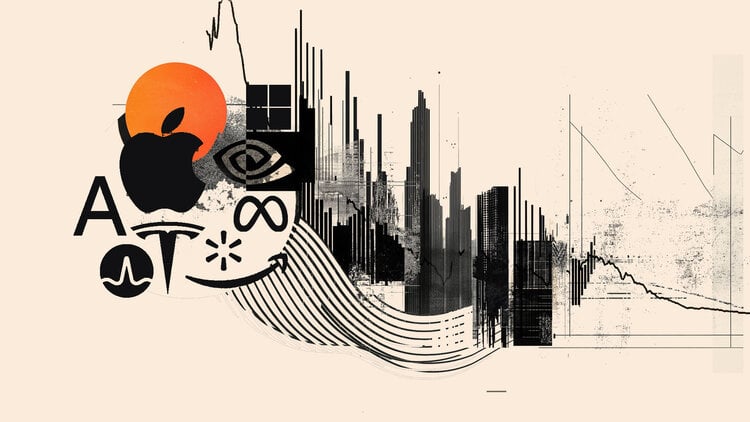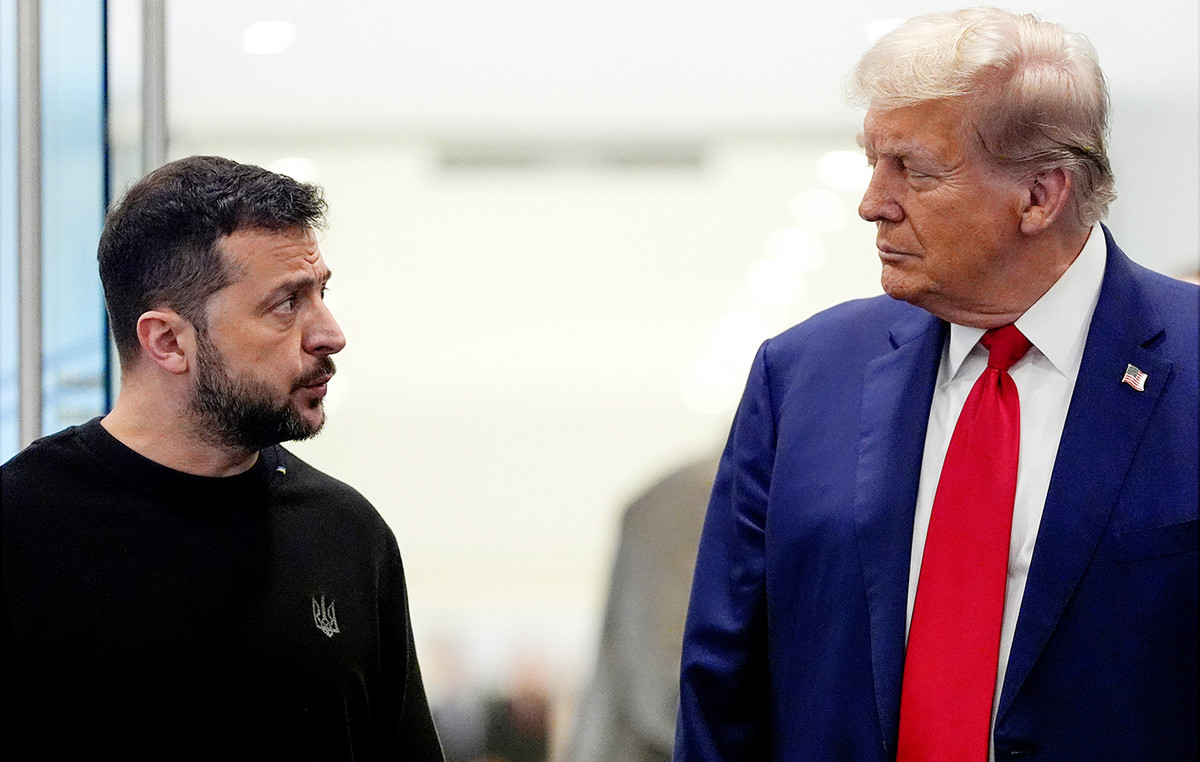After months of intense speculation and official reticence, China has finally confirmed that its two former defense ministers, who disappeared from public view last year, were under investigation for corruption.
Its dramatic fall has exposed alleged deep-rooted deceptions in key sectors of Chinese leader Xi Jinping’s military modernization drive despite his decade-long war against corruption, raising questions about the country’s combat readiness at a time of heightened geopolitical tensions. .
Li Shangfu, who was dramatically removed from the Defense Ministry in October after just seven months in the role, and Wei Fenghe, who served from 2018 to 2023, were expelled from the ruling Communist Party following the investigations, with both cases handed over to military prosecutors, state media reported on Thursday (27).
The pair represent the highest-ranking cut yet in a sweeping purge of China’s defense establishment since last summer that has ousted more than a dozen generals and executives in the military-industrial complex.
The turmoil in the upper echelons of the People’s Liberation Army (PLA) comes at a time when leader Xi Jinping seeks to make China’s armed forces stronger, more combat-ready and more aggressive in asserting its territorial claims in the region.
At the height of their careers, former defense ministers Li and Wei often struck a tough tone with the world’s top military officials. At successive regional security forums, the two generals warned that the Chinese military would fight “at all costs” if anyone dared to “separate” Taiwan’s self-governing government from China. They also took veiled shots at the United States, vowing to push back against its “hegemony” in the disputed South China Sea.
Both promoted under Xi, their removals come despite the anti-corruption campaign signed by the Chinese leader more than a decade ago, highlighting the difficulties in preventing corruption at the highest levels of the armed forces, according to analysts.
While Xi’s anti-corruption campaign has achieved some success, the lack of adequate civilian oversight and an independent legal system means the PLA relies on its internal investigators for oversight, said James Char, a research fellow at the Rajaratnam School of International Studies in Singapore. “That’s difficult, so corruption will certainly continue,” he said.
Corruption in weapons acquisition
As part of Xi’s ambition to transform the PLA into a “world-class” fighting force, China has invested billions of dollars in purchasing and modernizing equipment. Xi also built the Rocket Force, an elite branch that oversees the country’s rapidly expanding arsenal of nuclear and ballistic missiles.
Most of the generals fired or missing without explanation last year were linked to the Rocket Force or military hardware, including Li and Wei.
Before becoming defense minister, Li headed the PLA’s Equipment Development Department for five years. An engineer by training, the 66-year-old spent decades launching rockets and satellites in southwest China before being promoted to the PLA headquarters to handle military equipment acquisition.
Wei, 70, was the inaugural commander of the Rocket Force. In late 2015, he was elevated by Xi to a full service of the PLA’s former missile arm, the Second Artillery Corps, where Wei had worked for decades. Wei’s two successors at the Rocket Force were also purged.
The allegations against Li presented in the announcement by the party’s 24-member Politburo clearly point to corruption in weapons procurement.
In addition to accepting and giving bribes and abusing power, Li was also accused of “seriously polluting the political environment and industrial practices of the military equipment sector,” according to state broadcaster CCTV.
Joel Wuthnow, a senior researcher at the Pentagon-funded National Defense University, said the carefully worded phrase points to collusion between state-owned companies that make weapons and the PLA’s procurement system.
“We know there is some collusion, but it is not clear — and the CCP would not admit it — that the critical weapons are actually substandard or unreliable,” Wuthnow said. “If proven, that would be even more serious for Xi, as he would have doubts not only about ethics but also about actual military readiness.”
Analyst Char said problems in the PLA’s procurement system have existed for many years.

In 2018, a study by the China Naval Engineering University, the Navy’s equipment procurement center and the audit office of the Central Military Commission had already analyzed bid-rigging practices in the PLA’s equipment procurement and called for improving the bidding system, Char noted.
“These procurement and procurement problems raised questions about the quality of equipment that the PLA had previously acquired. How well do they actually perform in the field? I think that’s pretty debatable,” he said.
In a sign that China’s top military leadership could be concerned about the quality of its equipment, General He Weidong, vice chairman of the Central Military Commission (CMC), which oversees the armed forces, vowed in March to crack down on “fake combat capabilities” within the military, Char noted.
“His comment was quickly banned from public view afterwards. I think that says a lot about (the PLA’s) actual combat capabilities,” Char said.
‘Lost confidence’
Li and Wei are the most senior military figures to be toppled in six years by Xi’s relentless anti-corruption campaign.
The Chinese leader has made eradicating corruption and disloyalty a hallmark of his rule since coming to power in 2012, and ousted powerful generals previously considered untouchable.
In the early years of his first term, Xi claimed his two most senior military officers, Xu Caihou and Guo Boxiong, two former CMC vice chairmen. Xu later died of cancer and Guo was sentenced to life in prison for corruption.
In some ways, Wuthnow said, the latest corruption scandal surrounding the two former defense ministers is “even worse for Xi” than the Xu and Guo cases a decade ago.
“Back then, we could say Xi was cleaning house,” he said, noting that Xu and Guo were appointed to the CMC under former leader Jiang Zemin. But both Wei and Li were promoted under Xi.
“The cases of Wei and Li show that Xi’s own vetting processes and vaunted anti-corruption campaign over the past decade have failed to prevent corruption at the top of the system,” Wuthnow said.
“I think this shows once again that Xi has lost confidence in his own appointees.”

Wei was promoted to the rank of general just over a week after Xi took over the party leadership. Li was promoted to lieutenant general and then again to general within just three years.
The Politburo announcements state that Li and Guo’s actions “betrayed the trust and responsibility” bestowed upon them by the party’s top leadership and the military. Li “betrayed the party’s founding aspirations and principles” and Wei was accused of “collapse of faith and loss of loyalty,” according to CCTV.
“Xi must feel personally betrayed by this high-level corruption,” wrote Bill Bishop, a China watcher and author of the newsletter Sinocism.
But Xi remains determined to root out corruption and disloyalty. Last month, he summoned top military officials to a political work conference in Yan’an, a sacred site of the Chinese communist revolution in the party’s history, calling for deepening political rectification in the PLA.
“The barrel of the gun must always be in the hands of those who are loyal and trustworthy to the party,” Xi told PLA elites. “Rigor is clearly necessary to…achieve combat effectiveness. There should be no place in the military for corrupt elements to hide.”
Char, the PLA observer in Singapore, said that in the long run, Xi’s cleansing of the military and its procurement system bodes well for China’s combat capabilities.
“Problems are being fixed as and when, and there will always be an ongoing review on how Xi Jinping can truly accelerate the PLA to realize his dream of modernizing the PLA by 2035.”
Source: CNN Brasil
Bruce Belcher is a seasoned author with over 5 years of experience in world news. He writes for online news websites and provides in-depth analysis on the world stock market. Bruce is known for his insightful perspectives and commitment to keeping the public informed.







